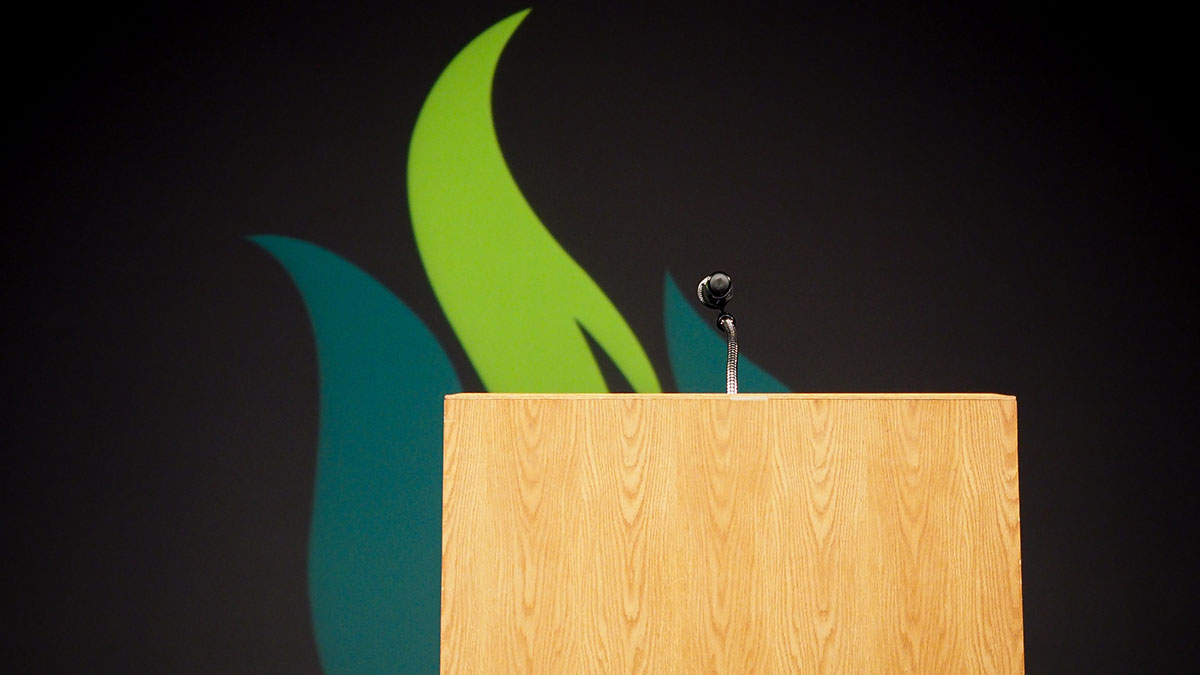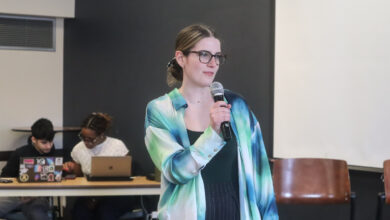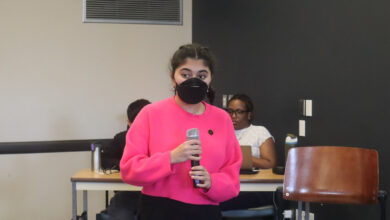Too many SU candidates are Poli Sci students
 Ab Sch
Ab SchIn between listening to breathy candidates at the SUBstage Forums struggle to articulate buzzwords such as “mental health” and “low tuition,” I started to look at the backgrounds of the different candidates running. I noticed a common theme: arts, arts, sciences, arts…
What I’ve noticed is that there’s a considerable lack of diversity in the Students’ Union executives. We see an executive meant to be representative of the student body, yet the make-up of which is surprisingly monochromatic. Dominated by students in the Arts faculty, the Students’ Union executive isn’t really that representative of the student body.
I’m not trying to diminish the contributions of current or past executive members. Hell, I’d vote for Navneet if she was running again. By and large, the exec has done good work for the student body, and has been responsive to student concerns. Yet the last two SU Presidents were Political Science students, the next president of the SU President may very well be another Political Science student, and the year after that may have another Political Science student, if we look at who may be inclined to run from this year’s potential VP winners.
So why is this a problem? If they are doing a good job then why should I care which faculty they are from?
You should care because a diversity of educational backgrounds is not only a better representation of the student body, but it can also allow for a broader degree of experiences added to the SU. I was talking to a friend about this and he brought up an interesting point “why wouldn’t you want to tap students already trained for the job?”
This leads me to my next question. Where are the engineers, the business students and the education students? The responses you can anticipate is that these students either don’t care or don’t have the time, and to varying degrees, you’re right. For some students, it’s simply not possible to run for the executive within the constraints of their degree. For other students, the SU just doesn’t have an impact in their life, and that’s totally fair.
Why is it important that students from these other faculties run? Diversity of opinion. Simple as that. At times during the candidate forums, I’ve had the feeling that we were sitting in an Arts forum and not a Students’ Union forum, especially during an economic downturn when students from multiple faculties are worried about job prospects.
In short, if you’re from a different faculty, and you have good ideas, then run. The Students’ Union executive is a body meant to represent more than just two faculties. It’s meant to represent all faculties and should be representative of that fact.





No-one thought it strange that 4 candidates were from CSJ, a faculty with only 600 students (the same size as Law?) I can only imagine what heated editorials would be written if 4 Law students had run!
William Lau was actually a nutrition student! Cory was a physics major. The rest of us were Poli Sci, so you’re right that other folks should run.
Actually, when I was an executive, we only had one Arts student as an executive. We had one student each in the faculties of Business and Engineering, and two students from the Faculty of Science. Unfortunately, two years of executives is not a representative sample. Someone needs to do a bit more fact checking before writing these Op-Eds.
I don’t think this is really a fair criticism of this opinion piece.
Sure in the grand scheme of things, 2 years isn’t a long time, but we’re talking about a university campus. If the writer is the average student spending 4-5 years as an undergrad, and they’ve seen 2 years already of SU execs with a majority of Arts students, and then see mostly Arts students running for election this year, then a significant portion of this writer’s university experience has been spent with mostly Arts students in the SU executive. There’s a good chance this writer wasn’t a student when you were on the executive, Saadiq. He’s probably criticizing the representation he’s received.
More research could be done to add another perspective to this piece, sure. But to disregard another student’s opinion because they’re only analyzing the SU’s makeup during their own university experience and not necessarily your time on campus, is irrelevant, get outta here.
If the average undergraduate experience is 4-5 years, half to less than half of that is not a representative sample.
Further, the writer doesn’t qualify their article by talking about their own experience. It’s implied through the fact that it’s an opinion piece, but if the writer wants to specify that, they should qualify their article.
Additionally, if the students choose to elect arts students, maybe students in other faculties need to figure out what it is that they are not doing.
I didn’t disregard this piece, merely just stated that more in depth research should be done when writing an article. Is a little bit of research too much to ask for? I would expect any media organisation to do their homework before putting pen to paper. I don’t think that’s too much to ask for Nope.
If students who spend 4 years on campus don’t see a wider variety of representation on the SU exec for 2-3 of those years, that’s a significant enough sample worth criticizing because that’s a significant portion of student life. Especially on a campus that already has problems with low engagement in SU politics.
There’s also probably a more constructive takeaway to be had about how to address the issue than thinking it’s on other faculties to figure out what they’re not doing. Like that the SU should do a better job of reaching and engaging a wider variety of students in the first place.
You’re right though that more research would have helped this piece. But the point of the article is still valid and hopefully something students can expect to see from more executives going forward after the wide representation in yesterday’s results.
I think we’re probably just going to have to agree to disagree on the particular issue of representative sample sizes in a student life context. I don’t see many agencies on campus (including the Gateway I might add) doing a better job of engaging students in the political arena.
In terms of SU Engagement, I think the SU just needs to do a better job of marketing itself to the greater campus community. I don’t think it’s an engagement issue. The SU model is fairly simple and straight forward: program and bring the students in and then engage them in advocacy efforts. It’s not rocket science. The problem is that students don’t realize the value the SU brings to campus through the different services and programs it provides. Maybe this is just wishful thinking, but if the SU did a better job of that, I think students would be more engaged on an overall basis, which would include SU Elections.
You’re probably right; but if time and again there are wide varieties of students in a race for executive positions and Arts students get elected, what value does pointing out that Arts students are elected provide to the reader? If on the other hand, there was an overwhelming majority of Arts students as candidates in all of the elections, that’s something worth examining.
At the end of the day, I’ve probably given this article far too much attention. I can only hope that, in future Gateway articles, more research and context is provided.
Saadiq out.